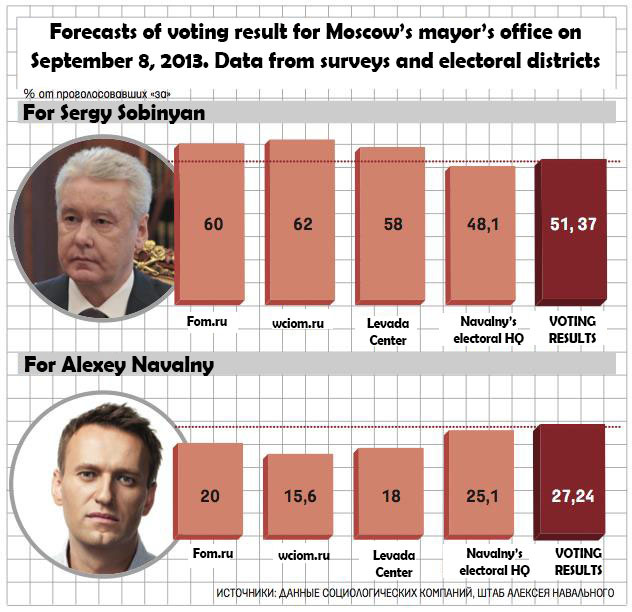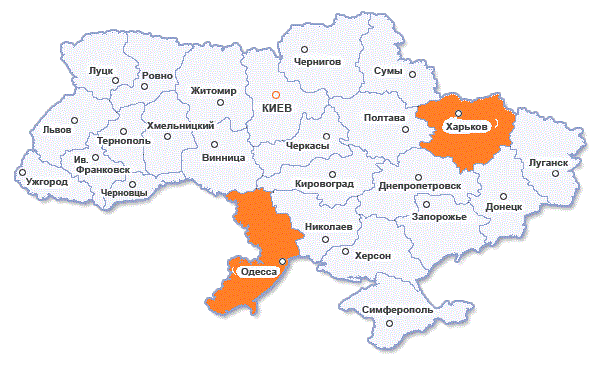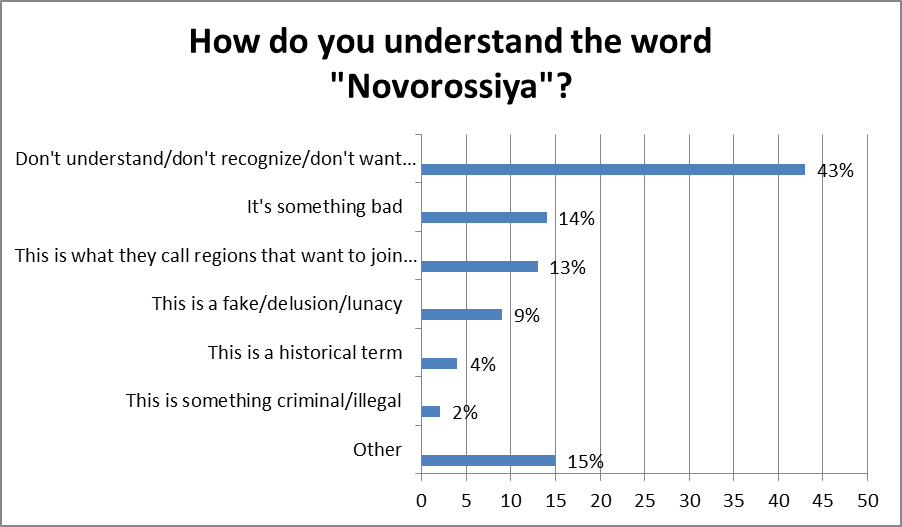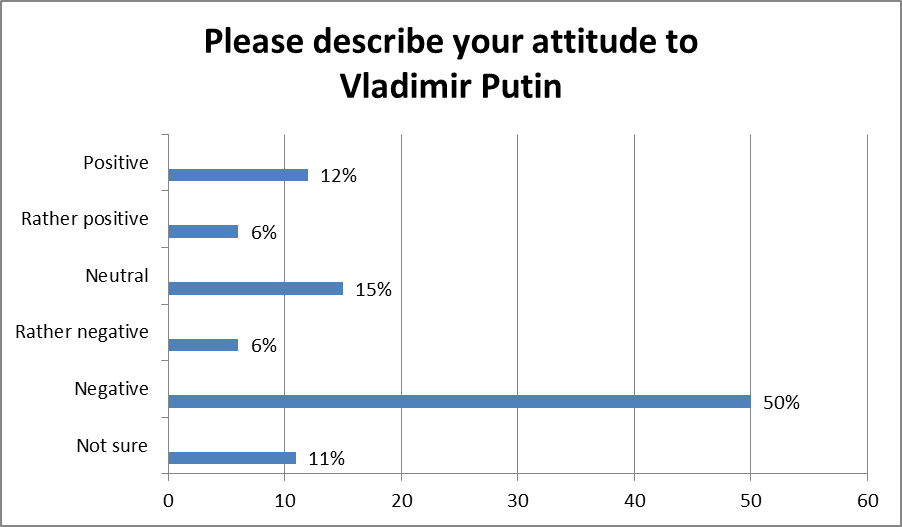Picture: “Novorossiya” as envisaged by pro-Kremlin blogger Fritzmorgen [hr]
Almost since the beginning of the crisis in Ukraine Kremlin-funded media has been preaching the idea of “Novorossiya” – a historical area allegedly colonized by Russian settlers and currently constituting the South-Eastern half of Ukraine. Nowadays, the propaganda dictates, the Russian-speaking citizens of the Ukrainian South-East yearn to overthrow the Kyiv yoke and join Russia.
Some could argue Putin’s failure to incite a pro-Russian rebellion beyond Donbas demonstrated that Novorossiya is but a propaganda myth, but no hard statistics has yet emerged to support or refute such claims. Until now.
Alexey Navalny, a Russian anti-corruption blogger and politician, has long been blaming Russian polling agencies for pro-Kremlin bias. During the 2013 Navalny’s campaign for Moscow mayor he launched a volunteer polling service of his own which yielded results much closer to the actual election figures than the “official” pollsters.

Navalny’s most recent poll was aimed (although not explicitly) to test the Novorossiya narrative against statistical facts. As the pollsters failed to get an adequate number of responses from the war-engulfed
Donetsk and Luhansk regions, they turned to Odesa and Kharkiv, the regions that are generally considered part of “Novorossiya” and that saw the most violent pro-Russian protests outside Donbas in spring.

The results of the poll proved controversial both for the pro-Kremlin crowd and probably certain Ukrainian activists. While not particularly eager in supporting the new Western-oriented course of the Ukrainian government, the citizens of the South-East proved not so willing to be a part of Russia as Putin’s propaganda would lead one to believe.
No, thanks
According to the poll results, a referendum in Odesa and Kharkiv similar to the one in Scotland (not a mock one like those in Crimea or Donbas) could result in an overwhelming 87% in favor of remaining a part of Ukraine.
The idea of an independent Novorossiya attracts merely 2% of the inhabitants of the historical region. Moreover, even the very concept proves dubious for them:
Apart from being rather cold towards the concept of Novorossiya, the citizens of Odesa and Kharkiv regions bear no great love for Putin either:
The Russian government in general gets a less polarized opinion: 39% describe their attitude as negative and 6% as positive. At the same time 58% report their attitude to the Russian government has worsened during this year, while a mere 3% started regarding Russian authorities better.
The poll offers much more interesting statistics we will cover in later updates. But one thing is for certain: Novorossiya is definitely nothing but an ideological construct of the Kremlin's propaganda machine.




